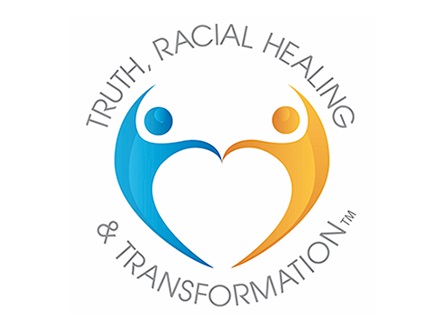In recent years, our world has faced a series of challenging events that have contributed globally to increased anxiety and depression within individuals and communities. The convergence of factors such as the COVID-19 pandemic, racial violence, political instability, environmental disasters, and conflicts has had a profound global impact on our overall health. It’s crucial for organizations to prioritize the physical, mental, and emotional health support for individuals and communities. To evolve into a healing-centered organization, we are committed to integrating trauma-informed practices into our education, training, and principles here at UC Davis Health. While we address this multi-layered approach in various ways, today, we want to take a moment to delve into what trauma-informed care entails, what defines a trauma-informed organization and how these principles can be applied in our day-to-day work.
What is trauma-informed care?
In our Growing as a Community workshop on Equity Centered Trauma Informed Education, Dr. Piri Ackerman-Barger highlights the essence of applying trauma informed care. She emphasizes that it involves comprehending the human experience, acknowledging the wounds we accumulate along with life’s journey, and recognizing how these experiences shape our perspectives and the world we inhabit. As healthcare providers, it is imperative for us to be attuned to these dynamics.
Trauma-informed care is a framework that redirects our focus away from the outdated notion of “what is wrong with a person” towards the more compassionate inquiry of “what happened to this person.” This profound shift in perspective honors the inherent dignity and lived experiences of individuals. It acknowledges that a person's experiences are integral to their healing journey, steering clear of the dehumanizing experiences associated with exclusion or judgment. This empathetic reframing underscores our commitment to providing care that is sensitive, respectful, and truly patient-centered.
In our highly anticipated screening of The Wisdom of Trauma, the film depicts the importance of recognizing that "Trauma is what happens inside you as a result of what happened to you." Through the lens of trauma-informed care we honor and validate individuals by acknowledging the diverse range of traumatic experiences they may have encountered. This recognition not only helps in understanding their unique journey but also plays a crucial role in promoting equitable health outcomes. It emphasizes the paramount importance of providing a safe environment, physically, psychologically, and emotionally, which empowers individuals on their path to healing.
Embracing a Trauma Informed Care Approach
A trauma-informed care approach goes beyond simply understanding a patient’s life; it entails embedding these principles throughout our education, training, care practices, and organizational cultures. As an organization, it is crucial that we not only acknowledge but fully comprehend the impact of trauma in terms of signs, symptoms, recovery, and healing. Our policies and knowledge should be infused with these concepts to prevent re-traumatization. Embracing trauma informed practices can lead to enhanced patient engagement, treatment adherence, improved health outcomes, and increased well-being among providers and staff.
As noted in Growing as a Community workshop on Equity Centered Trauma Informed Education, training the next generation of leaders while anchoring our culture in trauma-informed care provides the connective tissue that integrates these principles into our work. This approach can have a ripple effect, reducing toxic stress and fostering a psychologically safer environment that mitigates and prevents traumatic stress. It finds practical application in clinical settings and contributes to the holistic development of our workforce.
To advance trauma-informed care, we propose four foundational steps that will inform patient care, enhance employee health, and promote community engagement:
- Raise Awareness: Promote an understanding of trauma-informed practices, which encompass interpersonal, organizational, and community aspects.
- Hire a Trauma-Informed Workforce: Recruit individuals who embody the values of trauma-informed care.
- Create Supportive Environments: Establish and emulate spaces that cultivate a compassionate healthy physical, social, and emotional environment.
- Foster a Culture of Holistic Health: Promote a holistic approach to health and well-being that applies universally.
At the Office for Health Equity, Diversity, and Inclusion, we are committed to elevating workshops, training sessions, and lectures that facilitate learning about trauma-informed care and a range of other vital topics. Learn more about incorporating trauma-informed care practices at our upcoming film screening and panel on The Wisdom of Trauma.
Life-long Learning Resources
- The Wisdom of Trauma: September 29, 2023
- Growing as a Community: Equity Centered Trauma Informed Education
- Growing as a Community: Healing Our Trauma and Managing Our Toxic Stress Pt. 1
- Growing as a Community: Healing Our Trauma and Managing Our Toxic Stress Pt. 2
- SAMHSA's Concept of Trauma and Guidance for a Trauma-Informed Approach
Mercedes Piedra, M.S., Director
Healing Centered & Restorative Education
Truth, Racial Healing & Transformation Center
UC Davis Health Office for Health Equity, Diversity, and Inclusion
Piri Ackerman Barger, Ph.D., R.N., C.N.E., A.N.E.F., F.A.A.N.
Associate Dean for Health Equity, Diversity, and Inclusion
Office for Health Equity, Diversity, and Inclusion
Professor
Betty Irene Moore School of Nursing, UC Davis
Andrés F Sciolla, M.D.
Professor Emeritus of Clinical Psychiatry
Department of Psychiatry & Behavioral Sciences
University of California, Davis
Acknowledgements to the UC Davis Health, Office for Health Equity, Diversity & Inclusion’s TRHT Team for their contributions.





